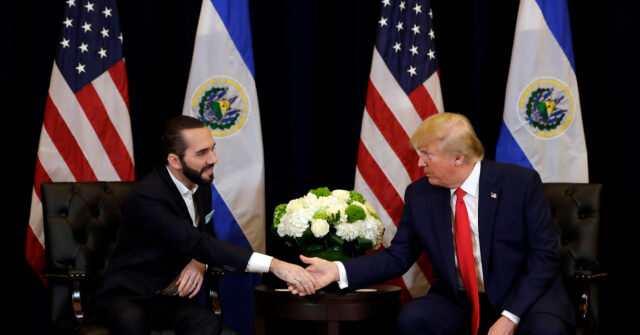On Wednesday, El Salvador’s President Nayib Bukele congratulated President-elect Donald Trump on his electoral victory, framing it as a significant turning point for human civilization. Bukele’s remarks came amid a long-standing and complex dynamic between El Salvador and the U.S., particularly following the Biden administration’s strained relations with Bukele. Under Biden, diplomatic ties deteriorated due to his administration’s criticism of Bukele’s domestic policies and perceived failures to address migration issues from Central America. In contrast, Bukele has focused on curbing emigration and promoting repatriation efforts for Salvadorans living abroad, seeking a positive and productive relationship with the U.S.
Bukele’s enthusiastic social media posts and personal messages to Trump reflect his belief in the potential for positive change under the incoming administration. He hinted at a deep-seated belief that the historical significance of the election has yet to be fully comprehended, referring to a “fork in human civilization.” While he has not elaborated on this assertion, his conviction marks a stark contrast to the previous U.S. approach towards his administration and gainsays the prevailing narratives surrounding political shifts in the region. Bukele’s coalition, known as the New Ideas movement, has gained considerable traction, winning him a remarkable 85 percent of the vote in the recent elections, while also curtailing the influence of traditional political parties.
One of Bukele’s most notable achievements has been his aggressive stance against powerful gangs in El Salvador, including Mara Salvatrucha (MS-13) and 18th Street gangs. His administration has employed a strategy of massive incarceration and has significantly empowered law enforcement to dismantle gang structures. The results of these efforts have led to a marked decline in gang violence, which has sparked a surge in foreign investment, tourism, and the growth of small businesses within the country. Bukele’s administration actively seeks to enhance these gains by encouraging Salvadorans abroad to return, promoting tax benefits and other incentives as part of his broader vision for the nation’s economic revival.
Bukele has openly credited the Trump administration for its prior support in the fight against gang violence. In stark contrast, he has been increasingly critical of the Biden administration, accusing it of neglecting El Salvador’s anti-crime efforts while enabling gang activity. His assertion that U.S. support for crime-fighting initiatives plummeted after Biden took office underscores a broader narrative of his government striving to maintain a strong American partnership. He asserted that the Trump era represented a better era for bilateral relations, with direct appeals for cohesive cooperation in tackling shared issues, including immigration and organized crime.
As the 2024 political landscape began to unfold, Bukele reiterated his support for Trump, speaking highly of the potential ramifications of allegations surrounding Trump’s legal challenges. During an appearance at the Conservative Political Action Conference (CPAC), he argued that attempts by the Democrats to undermine Trump’s candidacy could politically backfire, suggesting that such measures would only galvanize Trump’s supporters and enhance his campaign’s momentum. Bukele’s sentiments express a belief that the perceived attacks on Trump might inadvertently be strengthening his position in a polarized political atmosphere, which can influence voter sentiments in both the U.S. and Central America.
Despite his admiration for Trump, Bukele’s relationship with the president-elect has seen moments of tensions, particularly regarding the effectiveness of his anti-gang policies. Trump’s recent comments suggested skepticism over the outcomes of Bukele’s initiatives, accusing him of inadvertently exporting gang members to the U.S. Bukele’s subtle response, emphasizing a dignified approach, indicates his commitment to maintaining a constructive dialogue even amidst criticisms. This reality brings a nuanced portrait of Bukele’s political calculus as he navigates a relationship marked by public endorsements alongside critical observations, striking a balance between support and the defense of his domestic policies.
Overall, Bukele’s strong backing of Trump and open criticism of Biden reveals significant dynamics within U.S.-Latin America relations amid broader regional challenges. As Bukele’s administration strives to solidify domestic gains through governance reforms, economic improvements, and diminishing the crime wave, the future of El Salvador’s partnership with the new U.S. administration remains critical for ongoing initiatives, especially regarding migration management and security collaborations. As both nations move forward, the exchange of sentiments between their leaders will continue to shape future policies and public perceptions, underscoring the complexities that define contemporary political engagements in the Americas.

